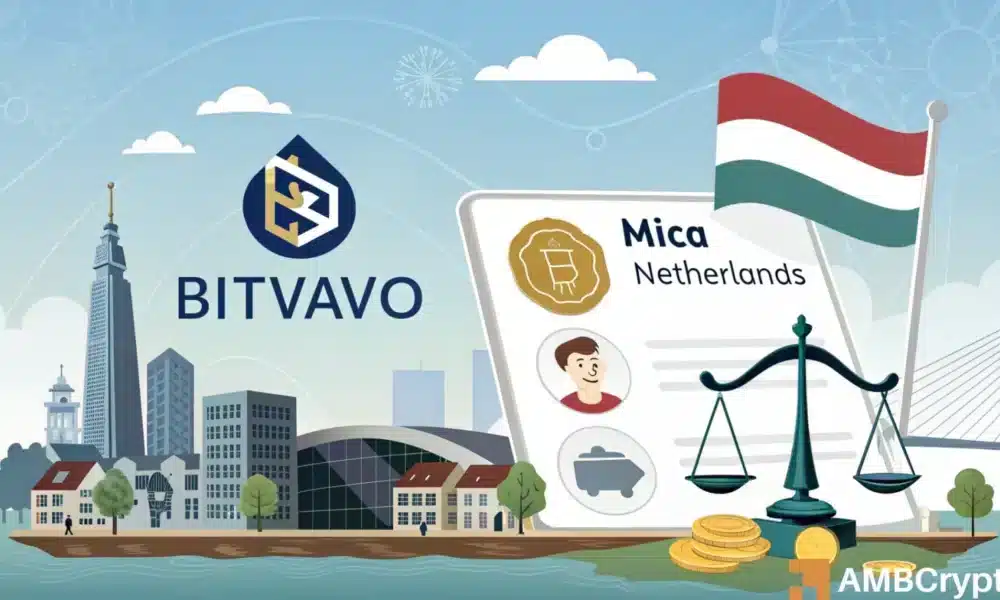Bitvavo Secures MiCA License: Paving the Way for Seamless EU Crypto Operations
In a monumental stride for the cryptocurrency sector, Bitvavo has become one of the first major platforms in the Netherlands to secure a MiCA license from the Dutch Authority for the Financial Markets (AFM). This significant regulatory achievement enables Bitvavo to operate seamlessly across the entire EU, including Norway, Iceland, and Liechtenstein, under a consistent legal framework. The Markets in Crypto-Assets Regulation (MiCA) introduces standardized rules across EU member states, allowing Bitvavo to enhance its operational efficiency and security, ultimately benefiting its users.
The backing of MiCA is a pivotal aspect for Bitvavo, as its CEO Mark Nuvelstijn emphasized the importance of a uniform regulatory environment. He stated, "We fully support the core principles of MiCAR. For a level playing field in Europe, it is essential that the rules are formulated and enforced consistently across all member states." This emphasizes the need for a coherent regulatory strategy, which not only raises the credibility of the platform but also enhances the overall user protection. Clear oversight and consistent compliance requirements ensure that Bitvavo adheres to stringent standards, showcasing its commitment to security and reliability.
Moreover, the European Parliament’s recent enactment of stricter anti-money laundering measures underscores the EU’s proactive approach in securing its crypto landscape. This move not only strengthens regulatory oversight but also fosters user confidence, critical in an industry often plagued by concerns over fraud and security. As Bitvavo embarks on this new journey, it positions itself as a leader in a rapidly evolving regulatory landscape, setting an example for other platforms across Europe and beyond.
Globally, MiCA is no longer viewed as just a European initiative. Other countries are closely watching the EU’s actions and moving towards aligning with international regulatory standards. This global shift towards regulatory clarity has not only facilitated seamless cross-border trading but has also bolstered user confidence worldwide. The MiCA framework exemplifies how a structured regulatory environment can significantly impact market dynamics, offering a blueprint for nations grappling with crypto regulatory uncertainty.
In stark contrast, the United States continues to navigate a fragmented regulatory environment, where differing interpretations of crypto laws complicate compliance for operators. Various agencies enforce inconsistencies, creating barriers for entities seeking to operate in the U.S. market. Although initiatives like the FIT21 Act and proposals for a national digital asset strategy hint at future regulatory cohesion, the U.S. still lags behind the unified framework established by MiCA. This discrepancy could result in missed opportunities for American crypto firms and investors, as they contend with the complexities of regional regulations.
As nations like Turkey implement comprehensive crypto reforms aimed at aligning with global standards such as MiCA, the landscape becomes increasingly complex for cryptocurrencies across the globe. With new policies targeting exchange operations, stablecoin regulations, and user fund flows, Turkey illustrates its intent to create a secure ecosystem for digital assets. As the regulatory landscape evolves, it places greater emphasis on the importance of international collaboration and standardization in advancing the crypto economy.
In summary, Bitvavo’s acquisition of the MiCA license marks a significant milestone in the European crypto landscape and sets a benchmark for other nations seeking to establish regulatory frameworks. The momentum generated by MiCA reflects a broader global trend towards unified crypto regulations, indicating that the future of digital assets will likely be shaped by structured oversight and international cooperation.


